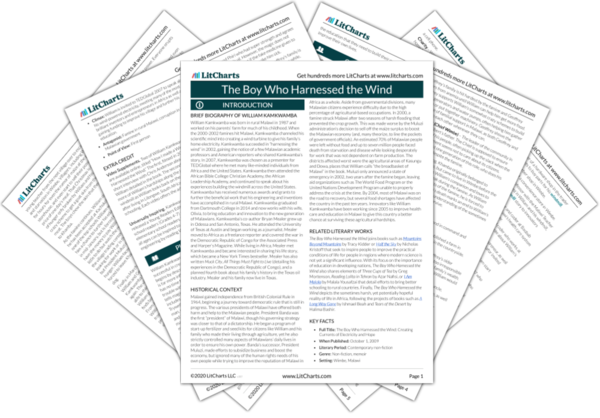AI ToolsNew
Tools to make learning and teaching easier
|
Previous
Nsima
|
Sing’anga Term Analysis |
Next
Walkman
|
My first and only experience with magic had left me with a sore eye and hands that throbbed from bad medicine. With my luck, I thought, they'll probably become infected and fall off.

Unlock explanations and citation info for this and every other The Boy Who Harnessed the Wind quote.
Plus so much more...
Get LitCharts A+